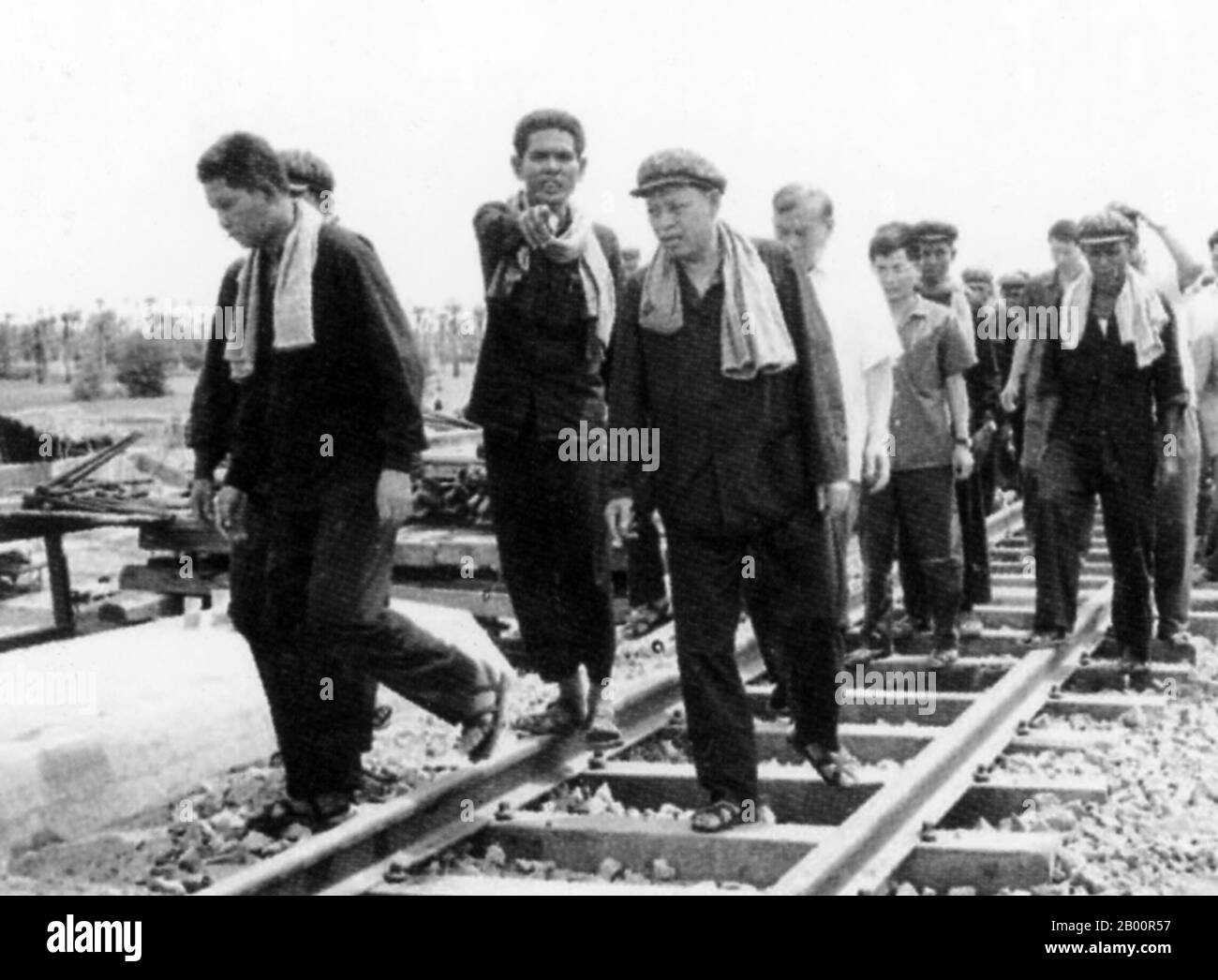Cambodia: Ieng Sary, Khmer Rouge 'Brother No 3', with senior cadre outside Phnom Penh during the Democratic Period, 1975-79. Ieng Sary, Khmer Rouge 'Brother No 3', was born Kim Trang in Tra Vinh Province, Vietnam, in 1924. He was Deputy Prime Minister and Foreign Minister of Democratic Kampuchea from 1975 to 1979 and held several senior positions in the Khmer Rouge until his defection in 1996. He is married to Ieng Thirith, former Khmer Rouge Social Affairs Minister.

Image details
Contributor:
CPA Media Pte Ltd / Alamy Stock PhotoImage ID:
2B00R57File size:
52.6 MB (818.5 KB Compressed download)Releases:
Model - no | Property - noDo I need a release?Dimensions:
5000 x 3678 px | 42.3 x 31.1 cm | 16.7 x 12.3 inches | 300dpiPhotographer:
Pictures From HistoryMore information:
This image could have imperfections as it’s either historical or reportage.
Ieng Sary, Khmer Rouge 'Brother No 2', was born Kim Trang in Tra Vinh Province, Vietnam, in 1924. He was Deputy Prime Minister and Foreign Minister of Democratic Kampuchea from 1975 to 1979 and held several senior positions in the Khmer Rouge until his defection in 1996. He is married to Ieng Thirith, former Khmer Rouge Social Affairs Minister. The Khmer Rouge, or Communist Party of Kampuchea, ruled Cambodia from 1975 to 1979, led by Pol Pot, Nuon Chea, Ieng Sary, Son Sen and Khieu Samphan. It is remembered primarily for its brutality and policy of social engineering which resulted in millions of deaths. Its attempts at agricultural reform led to widespread famine, while its insistence on absolute self-sufficiency, even in the supply of medicine, led to the deaths of thousands from treatable diseases (such as malaria). Brutal and arbitrary executions and torture carried out by its cadres against perceived subversive elements, or during purges of its own ranks between 1976 and 1978, are considered to have constituted a genocide. Several former Khmer Rouge cadres are currently on trial for war crimes in Phnom Penh.